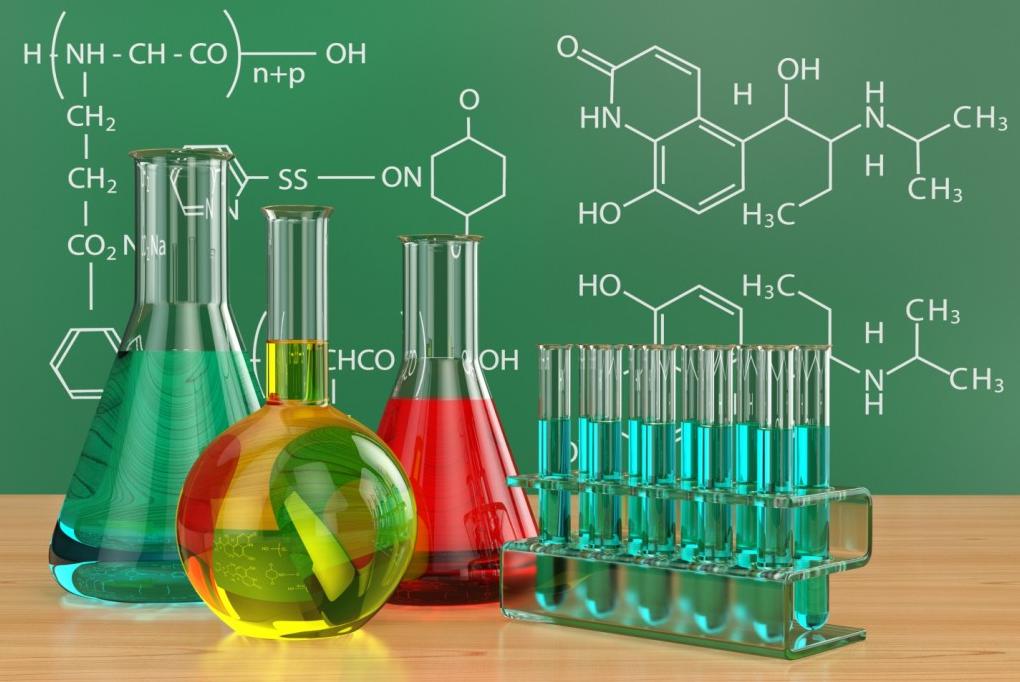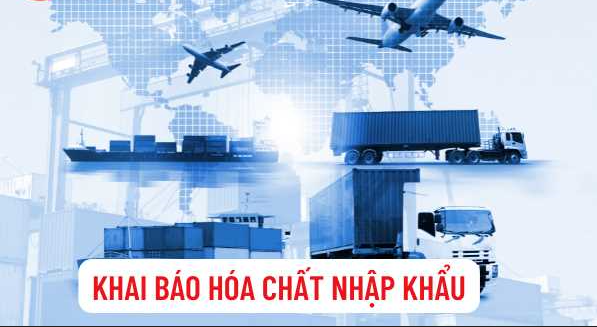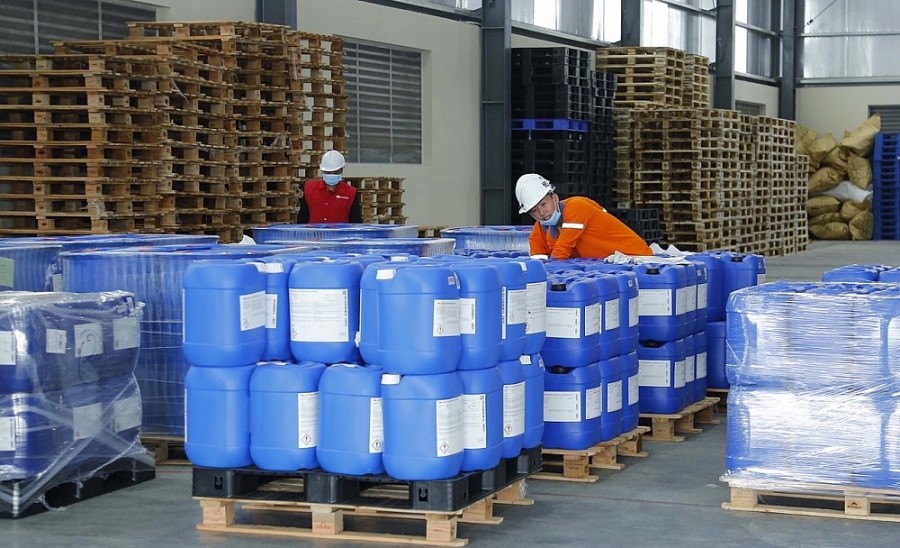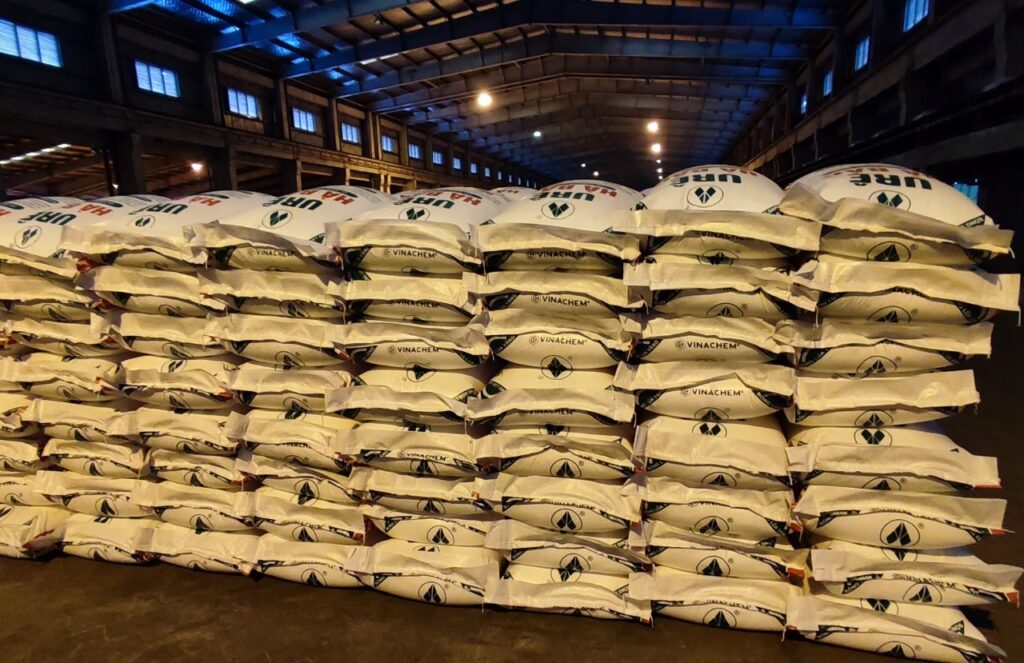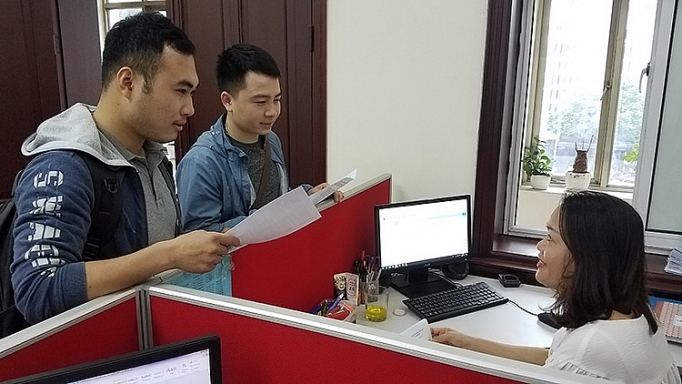 According to the Department of Chemicals - Ministry of Industry and Trade, Decree No. 38/2014/ND-CP of the Government on the management of chemicals controlled by the Convention prohibiting the development, production, storage, use and destruction of weapons. chemical weapons (Convention on the Prohibition of Chemical Weapons) has achieved certain results through 8 years of implementation. Besides the achieved results, there are still some shortcomings and limitations that need to continue to be adjusted for improvement in the future.
According to the Department of Chemicals - Ministry of Industry and Trade, Decree No. 38/2014/ND-CP of the Government on the management of chemicals controlled by the Convention prohibiting the development, production, storage, use and destruction of weapons. chemical weapons (Convention on the Prohibition of Chemical Weapons) has achieved certain results through 8 years of implementation. Besides the achieved results, there are still some shortcomings and limitations that need to continue to be adjusted for improvement in the future.
The Decree implementing the Chemical Weapons Convention needs to be completed
Table chemicals are dual-use, both basic chemicals (especially Table 3 chemicals) indispensable in the chemical industry, used as additives in cement production, to produce a Some types of cosmetics, production of electronic components, production of glues, cooling solutions... can also be used to create chemical weapons, one of the weapons of mass destruction. has great damage.
Clause 8, Article 4, Decree No. 81/2019/ND-CP dated November 11, 2019 of the Government on preventing and combating the proliferation of weapons of mass destruction defines dual-use as follows: “Materials, technologies and dual-use devices are materials, technologies and equipment that can be used for civilian purposes or for the production, sale, transportation and other activities related to weapons of mass destruction.
The dual-use nature of table chemicals is posing certain difficulties in management for both economic and social development and management in accordance with the purposes of the Convention on the Prohibition of Chemical Weapons. Therefore, regulations on the management of chemicals controlled by the Convention on the Prohibition of Chemical Weapons need to be improved to comply with the provisions of the Law on Chemicals and the Convention.
Recently, the Convention on the Prohibition of Chemical Weapons has had a number of changes such as: Technical guidance documents on completing the domestic legal framework (Guidelines on the policy framework for implementing the Convention on the Prohibition of Chemical Weapons) chemicals; National law enforcement guidance document for compliance with the Chemical Weapons Convention). Some Scheduled chemicals are added to the list of Schedule 1 chemicals.
In Decision No. C-24/DEC.4 and C-24/DEC.5 in November 2019, the 24th Conference of Member States of the CWC Convention decided to add 4 more chemical lines to the List. Table 1 chemicals.
This decision takes effect for member states from June 7, 2020, accordingly, member states need to add these chemicals to the list of chemicals that need to be managed in their internal documents. the law
 Thus, the development of a draft Decree to replace Decree No. 38/2014/ND-CP (Decree 38) is necessary to overcome a number of limitations, both legal and practical, to help State management of chemicals controlled by the Chemical Weapons Convention is increasingly effective, helping Vietnam comply and carry out its responsibilities in implementing the Chemical Weapons Convention.
Thus, the development of a draft Decree to replace Decree No. 38/2014/ND-CP (Decree 38) is necessary to overcome a number of limitations, both legal and practical, to help State management of chemicals controlled by the Chemical Weapons Convention is increasingly effective, helping Vietnam comply and carry out its responsibilities in implementing the Chemical Weapons Convention.
Orientation for amending and supplementing regulations on chemical management Table
Decree No. 38/2017/ND-CP is expected to be amended, supplemented or replaced in the direction of absorbing, inheriting and ensuring compliance with current legal documents on chemical management, improving Improve the effectiveness of management of chemicals controlled by the Convention on the Prohibition of Chemical Weapons, and at the same time strengthen the coordination mechanism in implementing the Convention on the Prohibition of Chemical Weapons between ministries, branches, and the central government. central and local. The main directions are as follows:
Proposal to amend and supplement regulations on chemical production The table aims to unify and complete management requirements (production, business, processing, consumption, storage, import and export...) , inspection, inspection, testing and reporting procedures for Scheduled chemicals, DOC, DOC-PSF chemicals in accordance with current regulations on chemical management (Chemical Law and Decree No. 113/2017/ND-CP; Decree No. 77/2016/ND-CP; Decree No. 08/2018/ND-CP...) and regulations in the Verification Annex of the Convention.
Supplementing regulations on assessment of actual conditions and assessment of maintenance of conditions for production and trading of Table chemicals. This regulation is the legal basis for inspecting the actual conditions of establishments producing and trading in Scheduled chemicals before granting a license in order to access and properly assess the actual situation of production and business activities.
Amend and supplement regulations on trading in table chemicals in the direction of business conditions in order to bring organizations and individuals participating in this activity into order, and at the same time help competent authorities strictly manage tighter and more effective.
For import and export of Table chemicals: Draft research to amend and supplement regulations to simplify administrative procedures and create open conditions for import and export of Table chemicals that have been granted Export Licenses Importers will not have to declare chemical imports and the issuance of Licenses to export and import Scheduled chemicals will be done through the National Single Window Information Portal. In addition, research and review regulations on import and export of Scheduled chemicals to make them more appropriate to limit discrepancies in import and export data between Vietnam and other countries when fulfilling obligations. information for the Organization for the Prohibition of Chemical Weapons.
Update the list of Scheduled chemicals according to the new requirements of the Convention;
Supplementing regulations on domestic inspection aims to better prepare for welcoming the international inspection delegation, while enhancing the effectiveness of state management and the responsibility of organizations to comply with legal regulations. , individual.
Supplementing regulations on concentration limits for management of Scheduled chemicals aims to both meet the declaration requirements according to the obligations of member states of the Convention, and comply with the policy of reducing investment, business and conditions. Simplify the Government's administrative procedures.
Improve the structure, organization and functions of the National Agency implementing the Convention and strengthen the inter-sectoral and central/local coordination mechanism in implementing the Convention.
Strengthen the application of information technology (declaration through the National Chemical Database; licensing through the National Public Service Portal...) to support the implementation of the Convention by organizations and individuals.
Source: Industry and Trade Magazine

